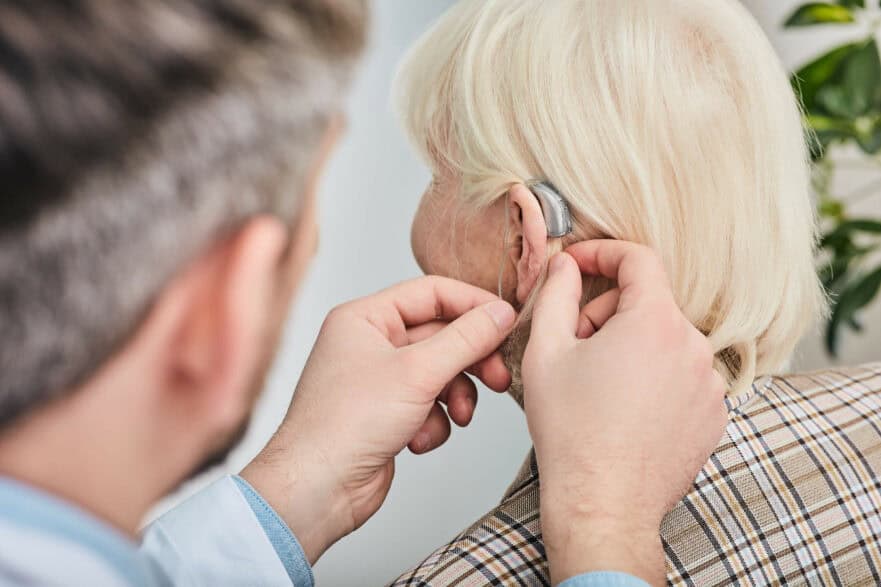When it comes to managing hearing loss, your hearing aids are invaluable tools that help you stay connected to the world around you. However, like any technology, hearing aids have a lifespan, and there may come a time when an upgrade is necessary to ensure optimal performance.
Changes in Hearing Ability
One of the most telling signs that your hearing aids may need an upgrade is a noticeable change in your hearing ability. If you find yourself struggling to hear conversations, experiencing difficulty understanding speech in noisy environments, or frequently asking others to repeat themselves, it could indicate that your current hearing aids are no longer providing adequate amplification.
As hearing loss progresses, your hearing aids may struggle to keep up with your changing hearing needs. Upgrading to a newer model with advanced features and customizable settings can help ensure that you continue to hear clearly in a variety of listening situations.
Technological Advancements
Advancements in hearing aid technology occur rapidly, with new features and innovations continually being introduced to improve the user experience. If your current hearing aids lack features such as Bluetooth connectivity, rechargeable batteries, or advanced noise reduction capabilities, you may benefit from upgrading to a newer model that better suits your lifestyle and communication needs.
Modern hearing aids offer a wide range of connectivity options, allowing you to stream audio directly from your smartphone, television, or other electronic devices. By upgrading to hearing aids with Bluetooth capabilities, you can enjoy seamless connectivity and enhanced listening experiences.
Physical Wear and Tear
Over time, wear and tear can take a toll on your hearing aids, affecting their performance and reliability. If you notice signs of physical damage, such as cracked casings, malfunctioning buttons, or corrosion in the battery compartment, it may be a sign that your hearing aids are nearing the end of their lifespan.
While regular maintenance and repairs can help prolong the life of your hearing aids, there may come a point where upgrading to a newer model is the best course of action. Investing in new hearing aids ensures greater durability and functionality, allowing you to continue enjoying clear and comfortable hearing.
Changes in Lifestyle or Hearing Needs
As your lifestyle and hearing needs evolve, so too should your hearing aids. If you’ve experienced significant lifestyle changes, such as retiring, traveling more frequently, or becoming more socially active, you may require hearing aids with features tailored to your new activities and environments.
Modern hearing aids offer a variety of customizable settings and programs designed to address specific listening challenges. By upgrading to hearing aids that are better suited to your lifestyle and hearing preferences, you can ensure that you continue to engage fully in the activities you enjoy.
Persistent feedback or whistling sounds, also known as acoustic feedback, can be a sign that your current hearing aids are not fitting properly or are no longer functioning optimally. While occasional feedback is normal, frequent or disruptive feedback indicates a problem that may require professional adjustment or, in some cases, upgrading to newer hearing aids with better feedback cancellation technology.
By upgrading to hearing aids with advanced feedback management systems, you can minimize or eliminate the occurrence of feedback and enjoy clearer, more comfortable hearing. Your provider can help you select hearing aids that fit well and provide optimal sound quality without feedback issues.
Regular Hearing Health Exams
Regular hearing health exams are essential for monitoring changes in your hearing and ensuring that your hearing aids continue to meet your needs effectively. During these exams, your provider can assess the performance of your current hearing aids, discuss any concerns or changes in your hearing, and recommend appropriate adjustments or upgrades as needed.
By scheduling regular hearing health exams, you can stay proactive about your hearing health and address any issues or changes in your hearing early on. Your provider can work with you to develop a personalized treatment plan that includes regular monitoring and adjustments to ensure that your hearing aids continue to provide optimal performance.
Knowing when to upgrade your hearing aids is essential for maintaining optimal hearing health and communication abilities. By recognizing the signs outlined in this guide and staying proactive about your hearing care, you can ensure that your hearing aids continue to support your lifestyle and well-being.

